You have no items in your cart. Want to get some nice things?
Go shopping
By late August and early September, it’s hard to avoid talk of autumn and its cosy knits and comforting meals. But let’s not fast forward too quickly. The autumn equinox, the astronomical transition between the seasons, actually takes place on 22nd September. That means for most of September we’re still enjoying lighter evenings, an abundance of British produce and lingering late summer cut flowers. In the garden, sunflowers, verbena bonariensis, dahlias, Japanese anemones and cosmos offer a final burst of summer colour.
Even if your school days are long behind you, it’s hard to shake that back to school feeling of a fresh start in September. After summer’s easy going spirit of relaxed routines, warmer weather and holidays, September ushers in a sense of returning ‘back to business’. We’ve previously written about harnessing the rejuvenating energy of the summer to set slow intentions in September. It almost feels like January 2.0 or a natural point in the year to reflect and reset.
So, let’s allow September to be September. It’s one of the easiest months to live seasonally and embrace the best of local produce. There’s simply so much to savour before the leaves start changing and the nights draw in.


What produce is in season in September?
September is a highlight in the seasonal eating calendar, with the end of the month coinciding with the traditional harvest season. Squash, apples and blackberries are in season, returning to the menu to inspire comforting crumbles and pies in late September. Earlier in the month, summer flavours linger with tomatoes, courgettes and cucumbers.
Vegetables in season in September:
- artichoke
- aubergine
- beetroot
- broccoli
- butternut squash
- carrots
- celeria
- celery
- chillies
- courgettes
- cucumber
- fennel
- French beans
- garlic
- horseradish
- kale
- kohlrabi
- leeks
- lettuce and salad leaves
- mangetout
- marrow
- onions
- pak choi
- peppers
- potatoes (maincrop)
- pumpkin
- radishes
- rocket
- runner beans
- shallots
- spring onions
- sweetcorn
- tomatoes
- turnips
- watercress
- wild mushrooms
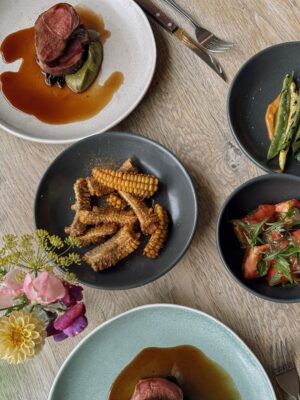
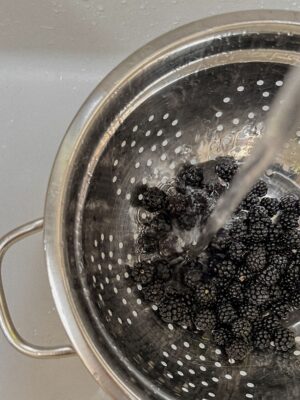
Fruit in season in September:
- apples
- blackberries
- damsons
- elderberries
- medlar
- pears
- plums
- raspberries
- redcurrants
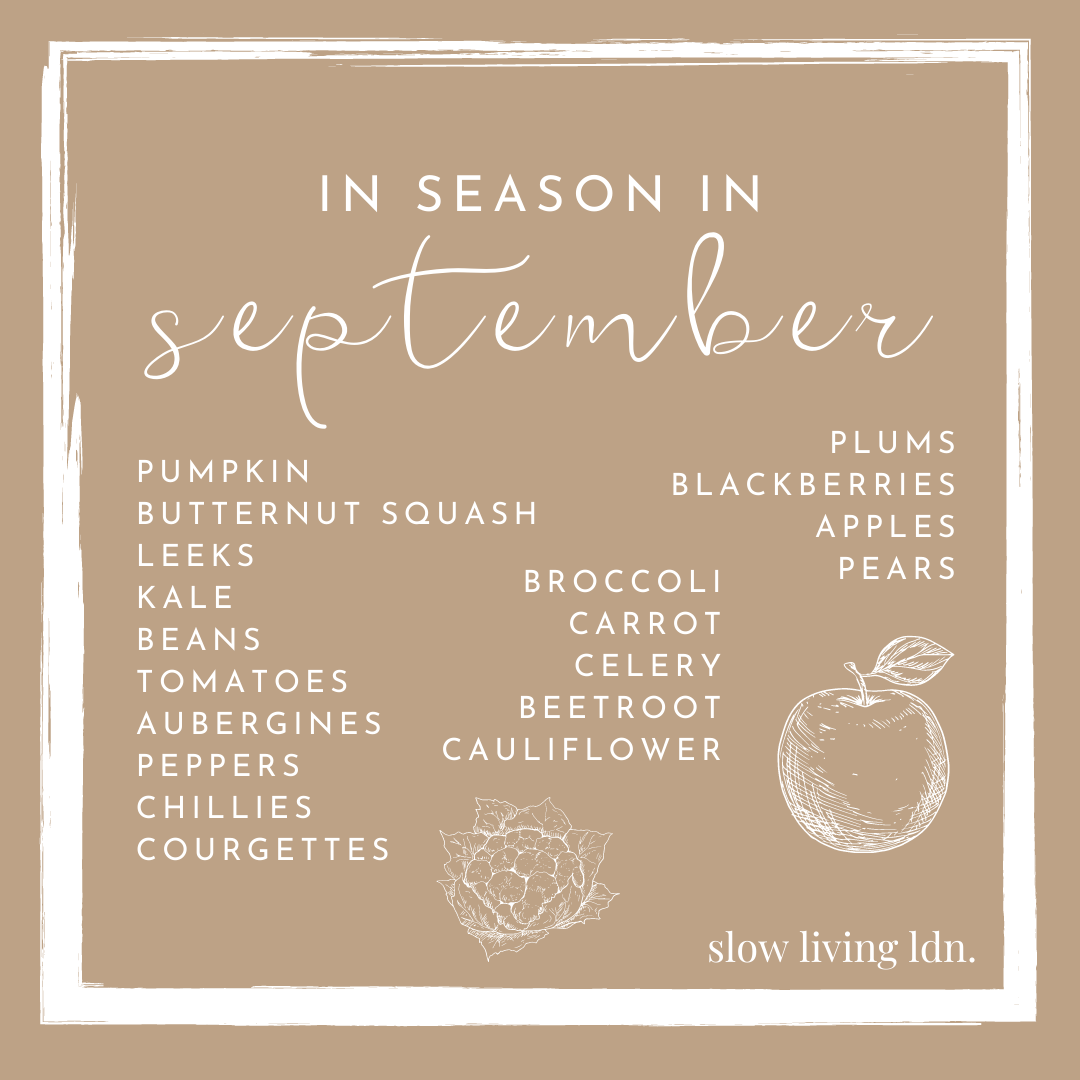
Seasonal recipe inspiration for September
- Twisted blackberry, apple and custard loaf
- Apple and almond welsh cakes
- Roasted squash and kale risotto
- Squash, sage and chestnut rolls
- Late summer tomato galette
- Blackberry and almond butter blondies
Seasonal activities and events for September
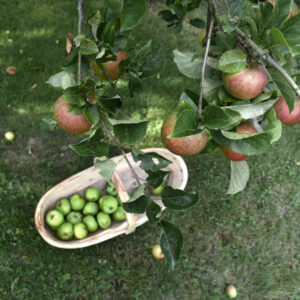
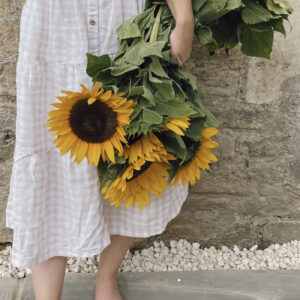
- Forage for blackberries for jam or baking
- Go sunflower picking in early September
- Press the last of the summer flowers (read our guide on how to press flowers for tips)
- Make the most of eating outdoors
- Celebrate British Food Fortnight and learn about Organic September
Head to our September Pinterest board for more inspiration.
British Food Fortnight
British Food Fortnight takes places between the 20th September and 6th October and is run by Love British Food. The fortnight is a national celebration of British produce and aims to foster a ‘robust market’ for British food, which sees sufficient consumer demand for farmers and producers to continue to invest in domestic food production.
To get involved, Love British Food is encouraging participants to shop locally and seek out British produce on menus when eating out. Past years have seen major supermarkets, pub groups and over a thousand independent shops take part.
Read more about British Food Fortnight. You may also enjoy our interview with Tom Calver, director of Westcombe Dairy, which produces one of only three artisan cheddars recognised by Slow Food UK.
Organic September
Organic September is a month-long campaign by the Social Association which aims to promote the benefits of buying, growing and eating organic produce, including:
- Supporting biodiversity and wildlife
- Helping to tackle climate change
- The highest standards of animal welfare
- Decreased exposure to pesticides
The campaign is an opportunity to learn more about organic agriculture and support local producers, as well as understanding how to champion more sustainable gardening at home. Organic standards ban usage of fossil fuel-based nitrogen fertilisers. The Soil Association reports that if all European countries moved to organic or agroecological food and farming systems, we’d see a 40% drop in emissions. Half of this drop would reportedly come from a reduction in the use of nitrogen fertilisers.
Read more about getting involved with Organic September.
More seasonal inspiration:
